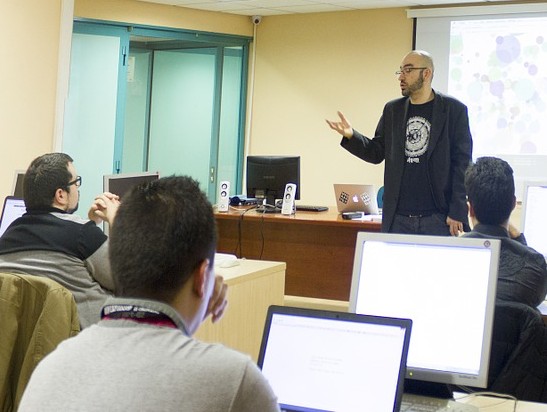News in Brief: Are your staff resorting to training themselves? Where do EU fathers get the most paternity leave?
- 2 Min Read
Workplace training programmes have become so bad that employees would rather do it themselves and what does paid paternity leave look like across the EU?
- Author: Owain Thomas
- Date published: Apr 18, 2016
- Categories

Workplace training programmes have become so bad that employees would rather do it themselves.
Research by Degreed found workers were choosing to develop their careers without employer assistance, dedicating themselves to home learning and external classes.
Employees revealed they were spending five times the amount of time learning at home per week than doing so through work.
The results mirrored the views of HR learning and development professionals who recognised the trend of self-development.
US workers said they racked-up an average of 3.3 hours per week in reading books and e-books, watching and listening to webinars, completing online courses and taking classes.
In contrast, Quartz reported that they spent just 0.6 hours per week in employer-based learning including training, e-learning, coaching sessions and attending conferences.
American HR professionals recognised this with two thirds admitting their workers were looking elsewhere.
More alarmingly, the Degreed research found only 38% of learning and development professionals thought they were ready to meet the needs of tomorrow’s learners.
EU paternity leave mapped
Take-up of shared parental leave hit the headlines earlier this month when it was found take-up could be as high as 25% of new fathers.
However, this research did not encompass paid paternity leave which all new fathers are eligible for and does not have to be taken from the mother’s share.
The UK allocates 10 days paternity leave, but this is not the same across the EU.
The Daily Telegraph mapped out how the distribution changes across the continent.
BAME gradutes under-employed
Minority ethnic people are more than twice as likely to be unemployed as similarly educated white people.
They are also paid almost 25% less than white equivalents – amounting to around £4.33 an hour less on average.
The Trades Union Congress (TUC) analysis of official statistics about ethnical diversity and employment rates was reported by The Guardian.
Black and minority ethnic (BAME) university graduates were two and a half times more likely to be unemployed that their white colleagues, the TUC found.
Meanwhile the unemployment rate for those BAME people was 3.2 times higher than white peers.






